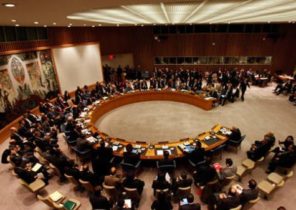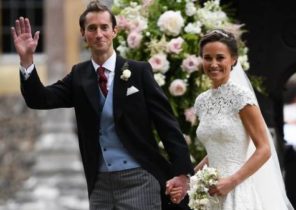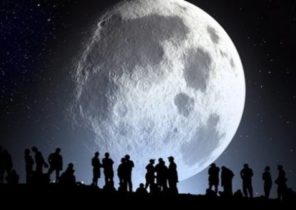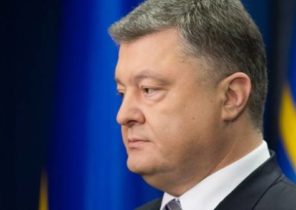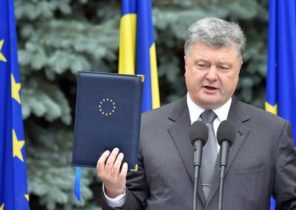Warm July evening in 2019, Ukrainian TV reported on part II of unprecedented political change. Two months earlier, former actor Vladimir Zelensky became President, with over 70% of the vote in the fight with the acting head of state Petro Poroshenko. Soon after that Zelensky has dissolved the Parliament and announced new parliamentary elections. And so they were to be held in the fall, but the President wanted to take maximum advantage of its success and secure a majority in Parliament.
He succeeded: his new batch of “public Servant” received 43% of votes and thus own a majority in Parliament, which now comprises more than 250 “servants”. They all entered Parliament for the first time. Zelensky, following his own example, made a bid for new powers. One of the new faces — Galina Yanchenko. A year later, a former activist in the fight against corruption, now occupies the post of Deputy Chairman of the faction “servant of the people”, summed up the interim results:
“Make big decisions new to me. I now work up to 16 hours a day. We have had countless meetings where we discuss the bills, I give a lot of interviews. But it’s nothing compared to the psychological aspect related to sense of personal responsibility. In addition, I realized that a good initiatives by themselves are not enough — they are associated with and discussions with representatives of various forces.”
Instead of having office hours — combines Jogging with citizens
For Yanchenko this means first and foremost the need to involve people from outside the Parliament. The proximity to citizens and transparency are key elements. Instead of the traditional office hours Yanchenko commit with the citizens of their running together, sometimes exchanging views with them over a Cup of tea or coffee. New style the first time. As for the content of pre-election promises of the party “servant of the people”, the main of them was the fight against corruption, in particular in Parliament. To demonstrate the seriousness of intentions, Parliament promptly passed a new law abolishing parliamentary immunity. Zelensky promised it during the election campaign.
His party colleague Yanchenko vengeance praises the idea: “the Immunity of the Ukrainian deputies was nearly untouchable. Against them it was impossible to bring charges before the Parliament will give consent to it. But it was useless. When the whole country knows that against someone is preparing an investigation, that person will do anything to destroy evidence against himself. In my opinion, this law is the key to our success”.
In Kiev’s political circles, there has been a lot of good reviews about the Galina Yanchenko. They are companions made the promise to reform Ukraine to heart. However, you can say that not all “servants of the people.” But many critics believe the symbolic telecast of the first day session of the new Parliament at the end of August 2019.
The faction of the “servant of the people”, along with activists like Yanchenko, having one or other personal experience in politics also includes former athletes and artists. The correspondent of one of the channels went through the parliamentary corridors and spoke with the deputies to test their professional knowledge. It turned out that many of them couldn’t decipher the acronyms of different government agencies. And one of the “servants”, claim the post in the Committee on agriculture, did not know how many square meters in one hectare. This is one reason why the political scientist Peter Baykovskiy of the Ukrainian Catholic University in Lviv critical about updates in the Verkhovna Rada.
“We now have a non-professional Parliament, and first of all it concerns the deputies of the ruling faction. It is almost a third of accidental and incompetent people who only vote for the laws. These people came to Parliament, because Ukraine needs new politicians. But not always, the updates bring improvements. In the last Parliament it was not all smooth sailing — many deputies had nothing to do with the welfare of the people. But now, in my opinion, the situation became even worse.”
The oligarchs remain influential
Baykovskiy recognizes that some laws passed by Parliament after the election, in pursuit of a good cause. Along with the law on the abolition of parliamentary immunity, the new powers received in 2014, the Highest anti-corruption court. In addition, entered into force a law abolishing the ban on the sale of agricultural lands, as urged by the international monetary Fund (IMF), which is Ukraine of vital loans.
At the same time, the analyst sees the unfavourable development of the situation, which may lead to the President a headache. Even when voting on the law on the abolition of the ban on trade of agricultural land Zelensky has failed to achieve unity in the ranks of his own party, and he needed the votes of opposition MPs. Similarly the vote was held and another key law, for which the President personally campaigned in Parliament:
“Know this: our doctors save our lives. Our soldiers protect our sovereignty. Now I want you to respectfully ask you to vote for this law. It is designed to protect our economy and at least directly to help Ukraine. Thank you very much!”
The law, which extolled Zelensky, for the banking sector. According to him, banks which have taken control of the state shall not be returned to former owners is another requirement of the IMF, directed personally against oligarch Igor Kolomoisky. Belonging to him “PrivatBank” at the end of 2016 “took over” the state, as Kolomoisky has long been considered the patron Saint Zelensky, many feared that the President would return the Bank to him. This, however, did not happen, and the law was passed.
However, Zelensky to do this, again it took the voices of opposition. In connection with that Bank considers that among the “servants of the people” there is no unity, and the oligarchs continue to exert influence on politicians. They is often given very easy: “Incompetent politicians are easily influenced. Most new members have never been associated with the oligarchs, but they still affect them — sometimes in financial matters, and sometimes in the other. Powerful oligarchs like Igor Kolomoisky and Rinat Akhmetov control of many media. At the same time for the Ukrainian politicians access to the media are often literally vital. But for that you have to pay, and no money, and the “right” vote.”
“Of course, Zelensky himself close to the oligarchic circles. Almost since Ukraine gained independence in 1991, the mighty moguls trying to influence politicians in their own interests. Against this, in particular, was directed the protests on the Maidan in autumn 2013. Although and in 2014 was elected President, the oligarch Petro Poroshenko, at first it seemed that the power of the oligarchs has been somewhat limited. But the fact that they continue to influence the situation in the country significantly, including in connection with an outbreak of the coronavirus. In April, the oligarchs have made considerable donations for the fight against the pandemic.
About 10 million euros for this purpose was provided by the Rinat Akhmetov. In Ukraine he’s not just anybody: this native of Donetsk is the richest citizen of the country. The condition, which currently is estimated at $ 3 billion, it earned in the coal and steel business, but the war in his native Donbass doesn’t hurt.
Earlier Vladimir Zelensky invited Akhmetov along with the other economic bigwigs to the meeting. As the President realized that the Ukrainian health care are not ready to fight against the coronavirus, he summoned the oligarchs in his “boat”. At a press conference after the meeting Zelensky has agreed in principle to accept donations from big business and direct them to charity. These words were not similar to the statement to limit the influence of oligarchs.
Expert on Ukraine, German society for foreign policy Hilge Wilfried (Wilfried Jilge) statement Zelensky was not surprised: “First of all, it should be noted that Zelensky during the election campaign never said directly that he was going to fight the influence of the oligarchs. Zelensky has directed its campaign primarily against the “old regime,” Poroshenko said. The second point: Zelensky led the fight in support of Ukrainian TV channel 1+1, one of the largest in Ukraine, and he belongs to Igor Kolomoisky. Of course, Zelensky himself included in the entourage of the oligarch”.
The lack of political competence
On this background, it is possible to assess the law on banks, “inconvenient” for Kolomoisky? Experts believe that Zelensky simply had no choice — without this law Ukraine wouldn’t receive new loans from the IMF. But for the most Zelensky was a positive side effect: he was able to show that is not a puppet of Kolomoysky, than his critics often reproached. Nevertheless, experts on Ukraine, in particular Wilfried Jilge stated that when Zelensky oligarchs blossomed again: the President is increasingly taking into consideration their interests to the detriment of the reforms in the country.
As an example, Hilge leads personnel policy. In March Zelensky made a number of changes in the government, including sacked Prime Minister. This post has been appointed Denis Shmyhal, who had previously worked in the energy group of the billionaire Rinat Akhmetov. In addition, I had to leave and respected professionals, who headed the Tax and Customs service. And in the Supervisory boards of public companies rarely get independent entity, but increasingly people associated with Kolomoisky.
This, according to Wilfried Ilge, says that the President is not too well-versed in politics: “the Problem Zelensky that he does not understand the meaning of the procedures designed to protect certain institutions from outside influence. The user does so because it has no clear strategy in areas such as justice, economy and governance, and can not establish mechanisms to limit the influence of oligarchs. And it would not be so bad if the President had a team, a professional versed in various key areas. But all the posts put his friends whom he considers competent and knows personally. And this, of course, convenient for the oligarchs system”.
The promise of peace was unrealistic
Thus, the economic tycoons have managed easily to penetrate the President’s inner circle. However, their obvious influence on the part of Parliament also shows that Zelenski can’t always please everybody. When in doubt, it is for the adoption of certain laws need votes of the opposition. In such cases it is necessary to make certain political concessions.
The fact that the oligarchs directly connected with the deputies, does not deny Galina Yanchenko. However, the Deputy Chairman of the faction “servant of the people” emphasized that at least in the ranks of her faction comprises mainly independent MPs: “for example, if we have 20 members, which are exposed to it a bit. The core of the faction, no doubt, are highly professional and honest people that I trust. They are not corrupt and are not affiliated with the oligarchs. They have good ideas, and they wrestle with real problems of people.”
Currently, according to Yanchenko, is working on a law to better protect foreign investors. Economists do consider the investments from abroad are an important tool for strengthening the Ukrainian economy. However, if these plans come to life and it will not hurt them oligarchs, is not yet clear.
The crisis center in the Crimea creates a lot of problems
In addition to domestic challenges, Ukraine for six years waging war in the East. During the election campaign, 2019 Vladimir Zelensky promised a speedy peace. This promise added to his popularity, but was far from reality. The so-called contact line, which separates government-controlled territory from the territories of the Pro-Russian rebels in the Luhansk and Donetsk regions, almost no one week does not do without shooting.
Often there are victims: in total they are already up to 14 thousand. Expert on Eastern Europe Wilfried Jilge, in addition to the ongoing fighting, sees another obstacle:
“No truce, no question about it. And we see that the Russian side is trying to raise the status of the separatists. In fact, they should come to the table flush with the Ukrainian government. To Russia, so to speak, could evade responsibility”.
Moscow rejects allegations of direct involvement in the war, despite numerous indications that, for example, by the OSCE. Moreover, Russia financially supports the territory of the rebels, and represent their interests in the peace process. Held in December under the mediation of Germany and France, the meeting of the Vladimir Zelensky and Vladimir Putin gave hope for peace — but it was all in vain.
Raising the status of the rebels, which seeks Putin in domestic politics is unlikely to be achieved, says Jilge. Autonomy for the regions, which requires Moscow, rejected by many and surrounded by Zelensky — for fear that these areas may eventually drop out. A quick solution is not expected.
The second ember 2014 crisis hearth — the Crimea annexed by Russia — also creates a lot of problems. How difficult situation in the Black sea, it became evident in the fall of 2018. Russian and Ukrainian military ships collided in the Kerch Strait, directly off the Crimean coast. The result was detained by Ukrainian soldiers, Russia temporarily blocked the Strait. Ukraine was thereby denied access to her own territory to the North of the Strait.
Experts warn that Russia could attack
On the first Sunday of July in Ukraine celebrates the Day of the Navy. It is noted the base of the Ukrainian Navy parade, awarded the order. Basically a festive event held in the port of Odessa in the South of the country. This year the Day of the Navy the President Zelensky announced the strengthening of the Navy and, in addition, emphasized that the annexation of Crimea is still considered unacceptable.
Official Kiev, as before, seeks to return the Peninsula. But it is hard to imagine that this could happen in the near future. The former Chairman of the Verkhovna Rada Oleksandr Turchynov more concerned about something else: “Russia has the potential to attack Ukraine from all directions. In Moscow, probably ready to launch a military operation, for example, in the direction of Kherson and Odessa regions. Then it will be impossible to disguise a hybrid attack, it would be open war.”
Turchynov is not the only one who warns about this. Back in may, Ben Hodges, former Commander of U.S. forces in Europe, spoke about this scenario. In his opinion, Russia can stage a humanitarian crisis in Crimea as a pretext to attack the South of Ukraine. Have long been talking about the problems with the water supply of the Peninsula. Until 2014 most of the water entered the Peninsula from the Dnieper river, which flows into the Black sea in the Kherson region North of Crimea. After the annexation, the Ukrainian government has blocked the North Crimean channel through which water from the Dnepr entered the Peninsula. What seemed a potential source of pressure on Moscow, may now be the weak point are the main concerns.
Wilfried Jilge does not seek “self-fulfilling” scenarios such as an invasion. But the fact that Russia may again put pressure on Ukraine in the Black sea, to solve the problem with the water supply of the Crimea, he considers it a realistic option. “A very difficult situation in the North-Western part, i.e. the part of the Black sea, where the trade route to the Ukrainian ports in the South of the country, that is profitable ports to export grain. There may be a situation of blockade, as in the sea of Azov. Therefore, an urgent need to improve surveillance over the situation in the Black sea”.
The Western allies of Ukraine should closely monitor this development. A year after parliamentary elections, the result is ambiguous. However Jilge said one political aspect: “it is not True that Ukraine is a failed state where nothing has been done. Done. And so now there is a struggle for power. We are talking about the last decisive reforms.”
And the partners need to critically follow the process that started with the protests on the Maidan in 2013 and continued last summer’s reform path was not in vain.

